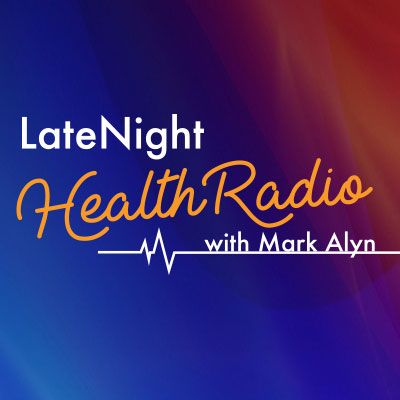Getting Past the Medical Gatekeeper (Part 2)- Eric T. Rosenthal 4/28/17

Sign up for free
Listen to this episode and many more. Enjoy the best podcasts on Spreaker!
Download and listen anywhere
Download your favorite episodes and enjoy them, wherever you are! Sign up or log in now to access offline listening.
Description
Getting past The Medical Gatekeeper, I am Eric Rosenthal, I’m a medical journalist and this is my personal story about an access my to care issue. I was forced to...
show moreI’ve been a lifelong runner and began having trouble breathing while exercising last fall. My internist diagnosed late-onset asthma, and prescribed a rescue inhaler.
However a few weeks later I began having difficulty breathing at night and developed a very bad persistent cough. After three nights of no sleep my condition grew worse and the day after Christmas I ended up in the emergency room of a suburban-Philadelphia teaching hospital, where I was diagnosed with bronchitis, and prescribed a course of oral prednisone as well as a steroidal inhaler in addition to my rescue version.
I continued seeing my internist, who made some changes in my inhaler dosage but my mid-March I was once again having trouble breathing and my cough returned causing my wife to rush me once more to the emergency room in the middle of the night. I was again diagnosed with bronchitis and prescribed a course of oral prednisone and antibiotics.
Feeling that I needed more specialized expertise I asked my internist’s office to recommend a pulmonologist and received the phone number of a 10-person practice in the same hospital with the name of a specific physician.
Knowing that I had two upcoming out-of-town conferences, I had a few dates in mind but didn’t mind waiting until I returned a week later as long as I knew that I had a scheduled appointment.
I called the pulmonology office and got a recorded message saying that I’d be called back. After several hours I called again, and then again, and again. I checked for alternative phone numbers on line and finally reached out to another office in a different suburb, where the receptionist informed me that she’d call my local office and someone would get back to me.
No one did and the next morning before boarding a plane for Miami I kept getting the same voice recording and then called my internist’s office and requested they try to get through. I was told that there seemed be a chronic problem contacting the pulmonology practice, which persisted when they tried calling without success.
Then 22 hours after my first phone call, while I was inflight, the pulmonology office finally called my wife and said that the physician I had requested wouldn’t be available for more than 2 months. My wife said, fine, please schedule another of the 10 pulmonologists and the receptionist said she’d have to call back with their availability, but never followed through.
The next day my wife had to physically visit the office and demand an appointment be scheduled before I had to end up in the ER a third time for care.
A week later I met my new doctor, who admitted that his practice had scheduling problems, but asked that we just move on with the exam. He adjusted my inhaler dosage, which has so far proven effective, and gave me his cell phone number for future emergencies.
I was now in the system, but wondered whether the practice would fix its problem so future patients wouldn’t find themselves in the no-access situation I had experienced.
###
Rosenthal is an independent journalist who covers issues, controversies, and trends in oncology as special correspondent for MedPage Today, and a contributor to The Hill. He’s had more than 40 years experience in journalism and academic public affairs, founded the National Cancer Institute-designated Public Affairs Network, and serves as a global health adviser to Concordia.
air date: 4/28/17
Information
| Author | Late Night Health |
| Organization | Late Night Health |
| Website | - |
| Tags |
Copyright 2024 - Spreaker Inc. an iHeartMedia Company
